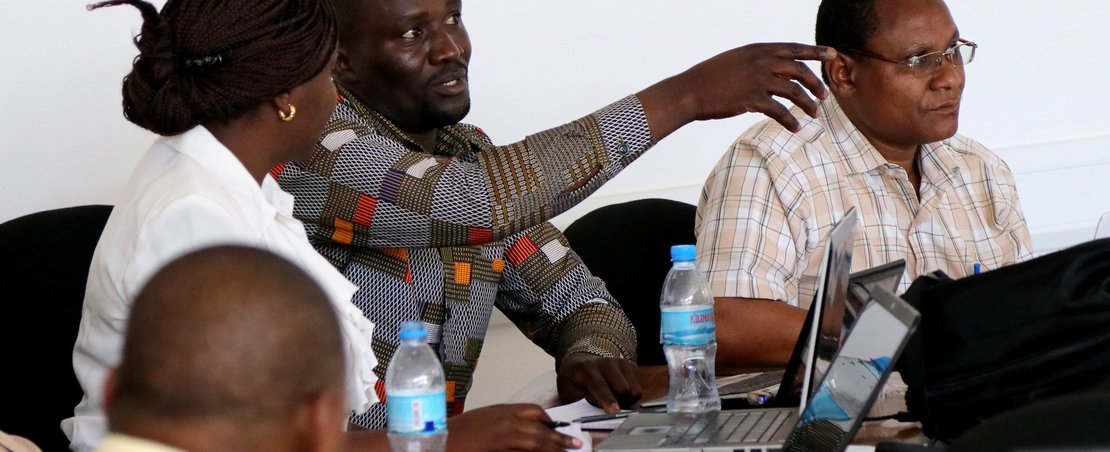
As part of its work with the OD4D-funded project Building an Africa Open Data Network (AODN), the ODI conducted a learning needs assessment of people working in government. ODI Trainer Emily Vacher shares some insights from the findings
2017 has been heralded as the year of data literacy. As more and more people begin to work with data, the demand for data skills is rising.
So far, a lot of the focus has been on the lack of data skills in business, and the difficulties faced by managers in building a data literate team. Search online for data skills and you are instantly bombarded with results for data science and big data. Reports on the data skills gap also tend to focus on the more practical skills needed by data scientists, rather than "the desire and ability to constructively engage in society through or about data."
At the Open Data Institute, we believe that data literacy should exist at all levels of society. Data literacy encompasses skills from across the data skills framework. Strategic skills, such as designing a service with data or developing a data informed policy, are as relevant in today’s society as practical data management, analysis and visualisation skills.
This is equally true in government; government employees need to be able to recognise and comprehend data and use it in order to solve problems, develop more informed policies and design improved services.
We recently conducted a survey to understand more about the data skills needed by people working in government. It’s still open, so you can add your views and experiences. Where permission was given by participants, we’ve made the data open, so you can explore and use the data yourself. You can also take a look at how we de-identified the data.
This data can be analysed in multiple ways. We’ve chosen to look at the skills that are in demand from people working in government – both globally and by continent – and how they prefer to learn.
The highest in-demand skills worldwide were:
- Data visualisation – 68%
- Innovating with data – 68%
- Measuring success – 67%
- Data analysis – 64%
- Making data more usable – 64%
The least in-demand skills were:
- Leading data initiatives – 41%
- Anonymisation – 40%
- Developing policies – 39%
- Licensing – 19%
- Machine learning – 0%
It’s worth noting that these are skills that individuals identified as important to them. Consequently, the results may reflect the data skills that people want, rather than the skills they actually need.
When we break the results down by continent, we see something interesting. In Africa, the most sought after skill is sustaining data initiatives, with four-fifths of respondents responding positively; in Europe and North America, most are looking for training in data visualisation (four-fifths) and data analysis (over two-thirds). For African governments, the desire for sustainability training may reflect the precarious position of data initiatives in terms of regime change and lack of funding. For European and North American governments, these results echo the way that many people are talking about data in these parts of the world.
As the ODI provides training, we were also interested in understanding how government employees prefer to learn. The mixed results reflect the many different styles of adult learners: two-fifths prefer only face-to-face methods, one-fifth prefer only online methods, and a third prefer blended learning, a mix of online and face-to-face methods. These findings show that face-to-face delivery is still important, even in an increasingly online world.
The results reflect enormous differences by continent: in Africa, 95% of respondents prefer face-to-face methods, with half of those selecting peer learning as their preferred learning method. In Europe, just under half favoured blended learning methods, with a quarter preferring eLearning. North American respondents also preferred blended methods, although a fifth preferred traditional lectures. The differences between Africa and Europe/North America is interesting: while these differences may be related to broadband quality, it also reflects our own experiences of training government representatives in Tanzania.
The ODI believes that increasing data literacy is key to building a society where consumers, citizens, creators can all benefit from data. We believe that data literacy should exist at all levels of society; it’s not just the domain of technical data scientists. As a society, we must change the way we talk about data skills to be more inclusive. For instance, with our results, there’s a risk that only people who associate themselves with data have answered the questions.
You can assess your own data skills, or those of your organisation, with our data skills framework. There is a huge amount of resources out there to improve your data literacy, including our own online and face-to-face courses.
This survey contained 84 eligible responses from people working in governments internationally. 70% of respondents were from national governments and 27% from local, regional or municipal governments. 45% were from North America, 24% from Europe and 20% from Africa. 7% of respondents were from South America. Oceania and Asia were underrepresented with 2.5% and 1% of respondents respectively. When breaking the analysis down by continent level, we excluded these continents as not having a representative sample.
If you have ideas or experience in open data that you'd like to share, pitch us a blog or tweet us at @ODIHQ.
Image: Participants from local governments in Tanzania attending open data training in November 2016